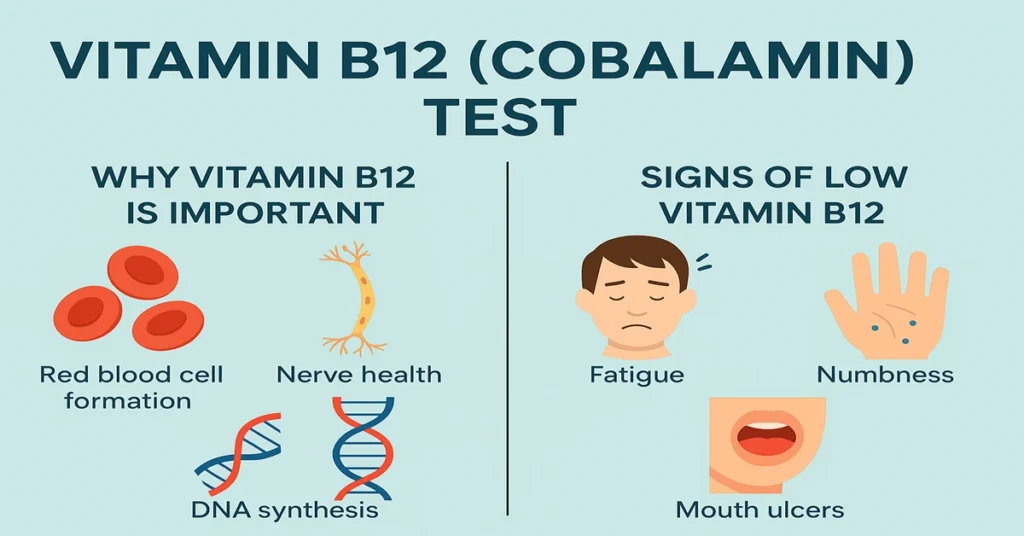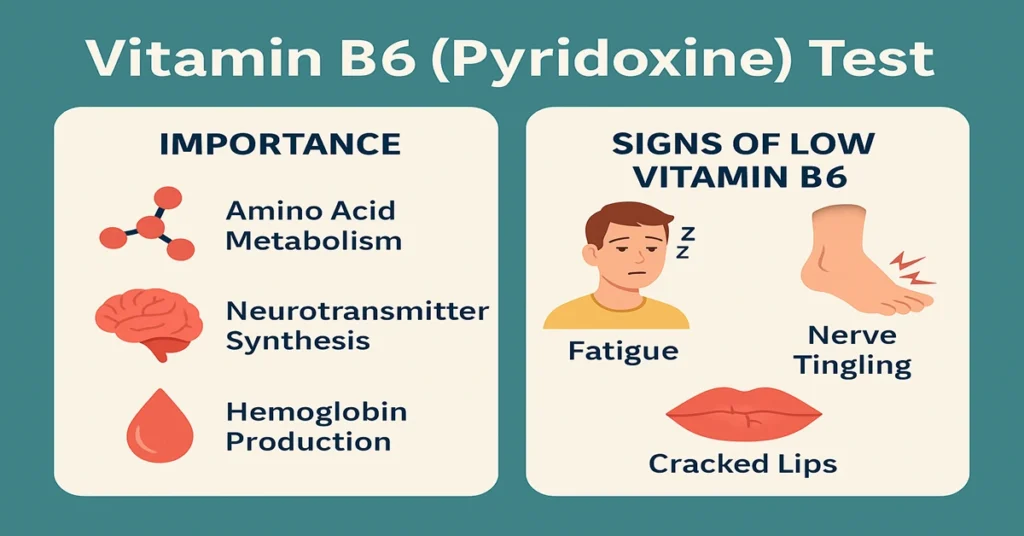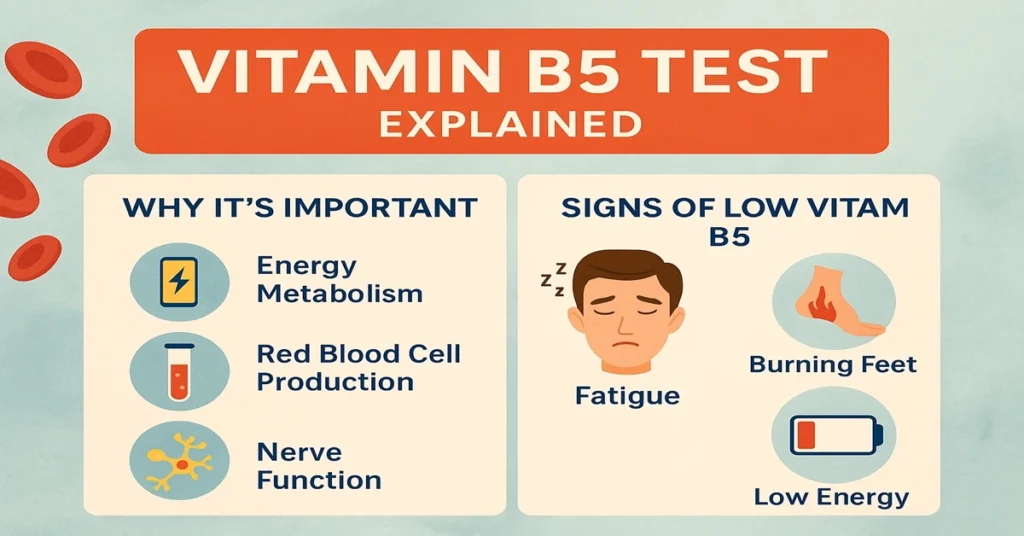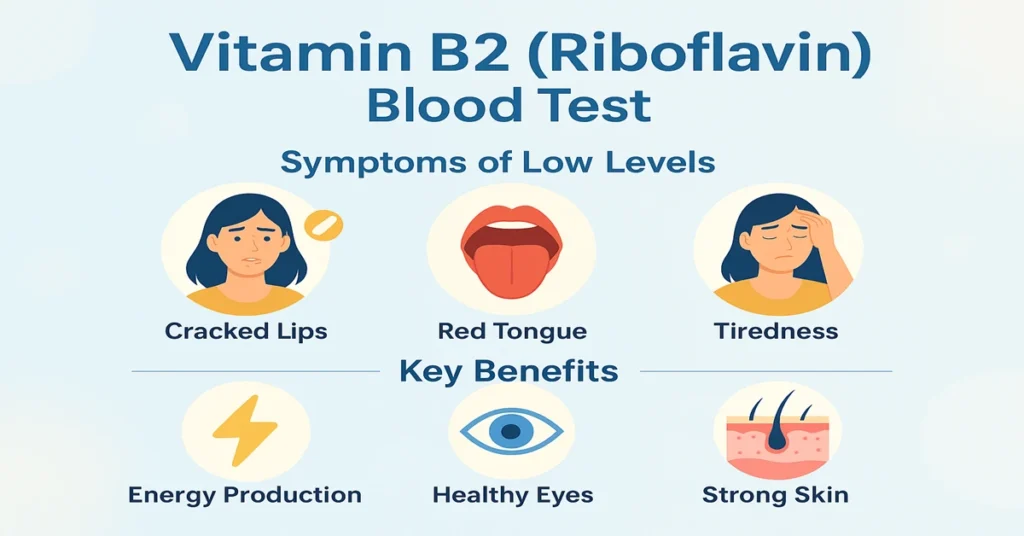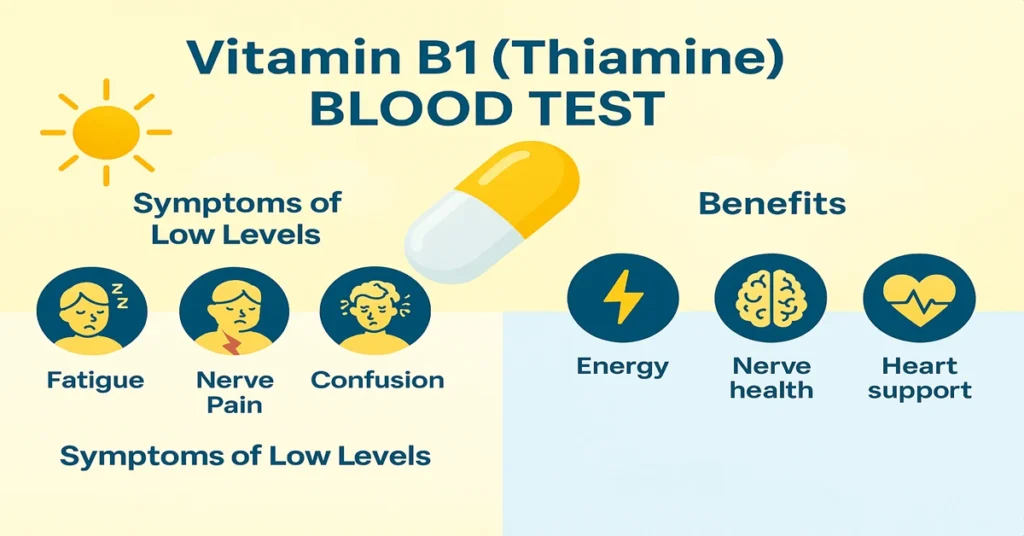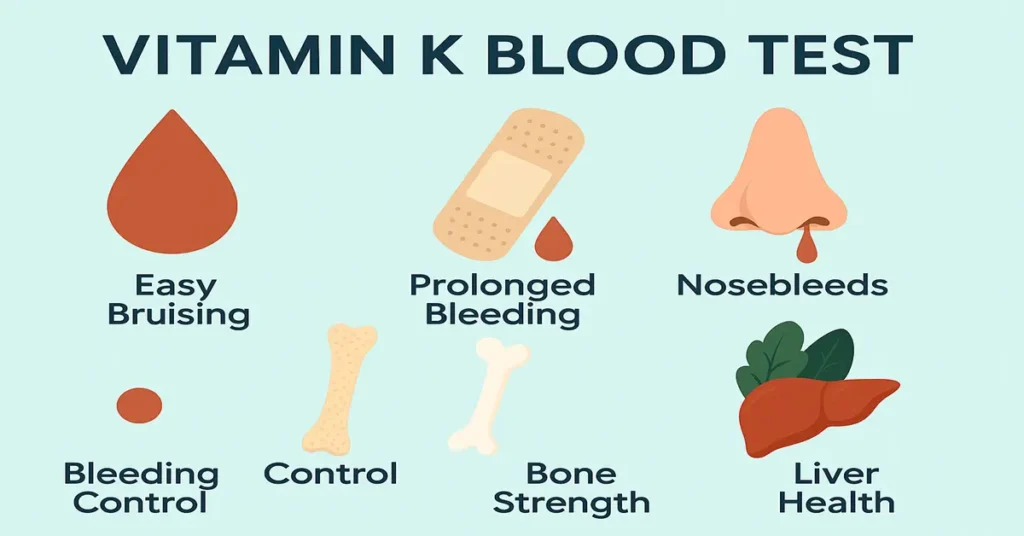Vitamin C (Ascorbic Acid) Test – Normal Range, Deficiency, and Importance
Vitamin C (Ascorbic Acid) is a water-soluble antioxidant vital for immunity, collagen production, wound healing, and iron absorption. Learn about the Vitamin C test, its normal range (0.4–2.0 mg/dL), deficiency symptoms, and preparation guidelines.
Vitamin C (Ascorbic Acid) Test – Normal Range, Deficiency, and Importance Read More »


